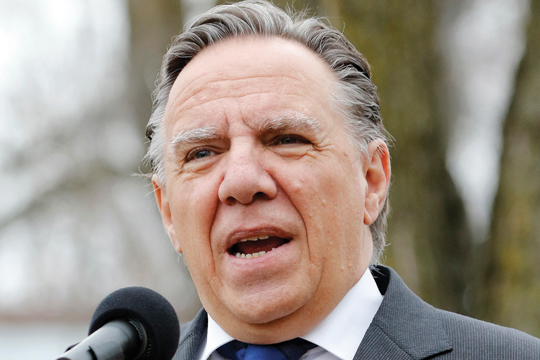
A primer on the recent reforms battle over the Quebec Pension Plan's age of retirement.
In France, tensions escalated this winter and spring as the Macron government announced plans to increase the age of retirement from 62 to 64. Millions flooded the streets and went on strike to push back against the changes.
Age of retirement discussions are not new. The Harper government increased the age of eligibility for Old Age Security from 65 to 67 and Trudeau’s Liberals returned it to 65 in 2015. Then this winter, the retirement age debate became heated again in Quebec.
When the Canada Pension Plan (CPP) was implemented, Quebec instead chose its own version — the Quebec Pension Plan — to be administered by the province. Every six years, the Quebec government holds a plan consultation to learn about the challenges facing the QPP and give Quebecers a chance to voice their opinions about potential changes to the QPP.
As part of that consultation this year, Retraite Québec said people are living longer, but the time at which they retire has not increased to keep pace. In 1984, the average age of retirement was 62.5; in 2021, the average age of retirement was 63.7 years. In 1966, when the plan was implemented, a 65-year-old could expect to live for another 15 years on average, whereas today that number is 21 years on average.
Retraite Québec argues that this means Quebecers are at a higher risk to outlive their savings, especially as many individuals opt to receive an early pension under the QPP (prior to age 65), which reduces how much they receive.
The government floated the idea of increasing the QPP eligibility age from 60 to 62 in a phased approach over the next seven years. Retraite Québec argued that these changes could increase the retirement security of Quebecers, while Premier François Legault's government stated this would help retain older workers as the labour force shrinks. Their objective, they said, was the financial health of Quebecers.
The opposition parties opposed the changes. Unions, including the Confédération de syndicats nationaux (CSN) and Syndicat de professionnelles et professionnels du gouvernement du Québec (SPGQ) spoke out against them, and FADOQ called for maintaining the current age of eligibility. Many said the QPP was in reasonable shape and that there were individuals who still needed to retire early — for instance, those with disabilities or in industries with heavy manual work that took a physical toll. The flexibility the current system allows was seen as a benefit.
The Canadian Institute of Actuaries called for the changes to be implemented. In 2019, the organization suggested a similar increase for the CPP for many of the same reasons that Retraite Québec has proposed its changes.
The National Institute on Aging encouraged the Quebec government to move away from a legislative solution it said would be ineffective, particularly as it would create a mistrust of government. The Institute instead encouraged Quebec to focus on better communication to encourage those who did not need the extra funds immediately to wait longer to apply and take advantage of unreduced amounts, as their payments wouldn’t be subject to early reductions.
Ultimately, the Quebec government announced in March that it would not change the eligibility age. Instead, it said workers 65 and older who are in receipt of a pension would be able to opt out from QPP contributions. The province also increased the maximum age someone can apply for QPP from 70 to 72. Meanwhile, for the CPP, contributions stop at age 70, and the maximum age is 70.

